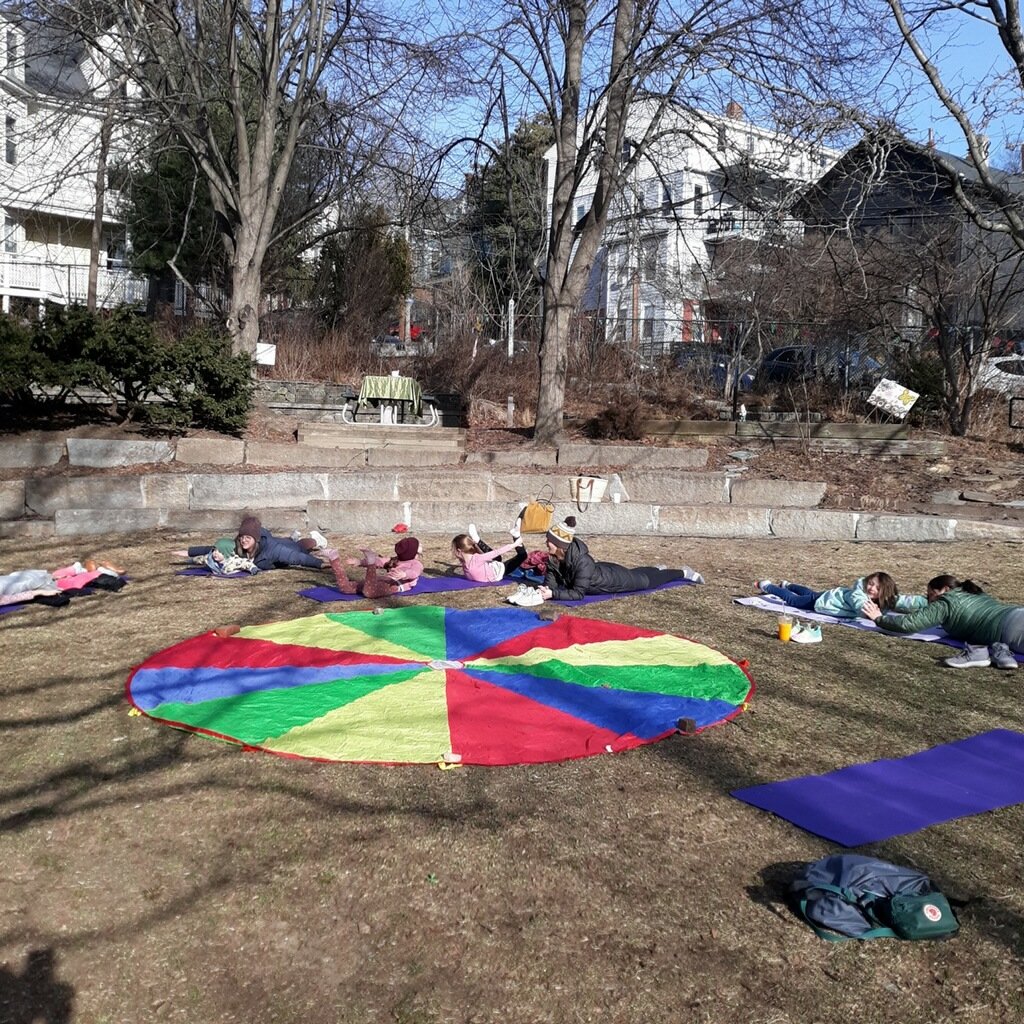Get students outside this fall to explore the watershed!
MyRWA’s education team is excited to offer new programming this school year that engages students in new projects happening in their community and encourages outdoor learning. We are looking to expand our new K-12 curriculum on marine debris and stormwater pollution by partnering with teachers in coastal communities who are passionate about ecology, recycling and reducing runoff. We’ve also developed a new K-12 curriculum on stormwater tree trenches in support of a two-year Municipal Vulnerability Preparedness (MPV) grant to raise awareness of how street trees can reduce flooding and mitigate extreme heat in Chelsea, Everett, and Melrose. We ask teachers in these communities to reach out to our Education Manager Natalia at Natalia.Bayona@mysticriver.org to learn more about our offerings!
Looking for more ways to get your students outside this fall? Natalia is excited to offer nature-based yoga, mindfulness nature walks, and social emotional learning (SEL) workshops for teachers and students! She recently became certified as a yoga instructor and SEL facilitator through the Breathe For Change Mindfulness, SEL, and 200-hour Yoga Teacher Training Program for educators. Her programs help students of all ages experience nature somatically through movement, mindful observation and exploration. Workshops can also be geared toward adults and educators seeking support and training.
MyRWA social emotional learning workshop at the Somerville Community Growing Center. Credit: Natalia Bayona
For those teachers interested in more project-based activities, you can sign up to collect phenology data–like leaf drop and color change–through Harvard Forest's Schoolyard Long-Term Ecological Research Program. Earthwise Aware also leads community science programs throughout the watershed to survey biodiversity and shares their protocol with students in the classroom. This winter, teachers can also start collecting real-world data on road salt pollution through Salt Watch by measuring chloride concentrations in their local waterway throughout the year. Our team is available to visit students in class to share more about how these types of data can be used to help improve water quality and biodiversity in the watershed. As always, we offer educational invasive plant removal and trash clean-up events to teachers interested in community service opportunities.
We are always looking for volunteers to help us develop lesson plans and expand our curricula–if you are interested in supporting this work, please contact Natalia. Teachers can also reach out to her with questions about any of our educational offerings or to schedule a program at their school. We look forward to a great start of the school year!







